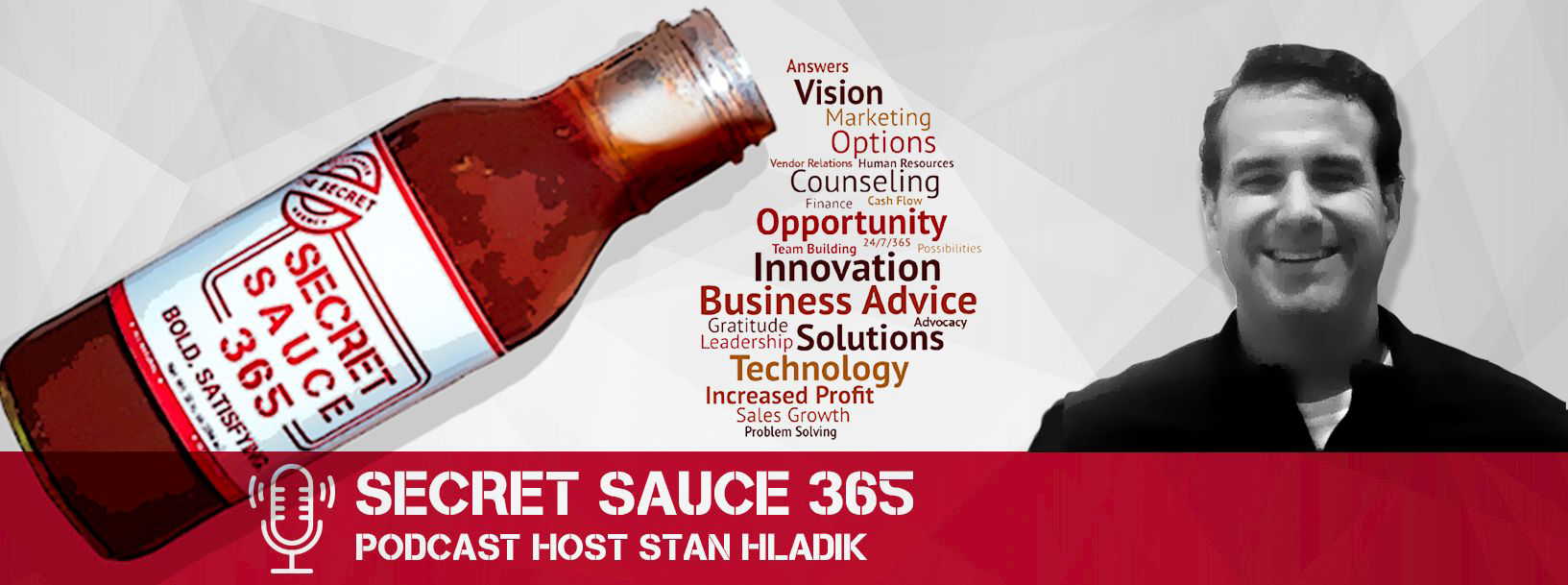Business Tips from Cardie Saunders

Secret Sauce 365
Episode #3
Successfully building and implementing a thesis of Controls, Instrumentation, Measurement and Sensor manufacturing and distribution businesses from concept to a global platform. What started as an idea in 2018 has now reached north of $65MM in revenue, with a robust pipeline of growth ahead.
Outside of the controls business, involved in partnership, board member and/or advisor roles in several operating companies and global projects focused on business development and change.
From 2010 – December 2017, Mr. Saunders was CEO and Founder of eTemp®, a technology company disrupting the $220B commercial refrigeration industry. eTemp helped executives at major hospitality, retail, university and food service companies, reduce operating costs. Awarded 2015 Environmental Product of the Year, eTemp’s clientele includes over 30% of the Top 50 Hospitality Brands as well as the U.S. Dept of Defense.
From 2004 – 2009, Mr. Saunders successfully started, acquired and divested of businesses in a variety of industries, ranging from financial services to industrial contracting and green cleaning technology. Prior to 2004, Mr. Saunders was President of a $40MM HVACR wholesaler, where he performed a $7.5MM EBITDA turnaround and divested the stand alone subsidiary to three different acquirers. Prior to this, Mr. Saunders served as head of Sales & Marketing for a $170MM Carrier division of United Technologies where he grew market share, selling profit and sales by double digits in all categories, including launching the division’s first and profitable e-commerce site and being named United Technologies Emerging Leader in 2001. Prior to VP role, had continually escalating positions with UTC starting in Strategic Planning, Product Development and final position in M&A operations and sales due diligence role, sourcing and vetting distribution acquisitions as part of Carrier’s North American go to market shift.
Mr. Saunders strengths lie in entrepreneurial interfacing, deal sourcing and structure, clean and energy reduction technology, hospitality, industrial, troubleshooting, harvesting EBITDA and growth. His experience in both starting companies and managing in large organizations gives Mr. Saunders the entrepreneurial success and corporate background to creating and sustaining value.
What You Will Learn:
- Where to get experience from
- The importance of surrounding yourself with the right people
- How to motivate and challenge salespeople
- Mergers & Acquisitions
- Real Estate Investments
In the latest episode of the Secret Sauce Podcast 365, we speak with Cardie Saunders, Corporate Development Executive at AEA Investors about some important topics in marketing your business.